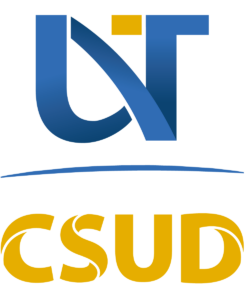Field of Management
The mission of the doctoral field in Management is to provide an organizational and functional framework for conducting complex scientific research, based on critical analysis, that leads to valid studies interpreting the structures, processes, and managerial mechanisms specific to contemporary economies.
Through the research topics within the areas of expertise of the doctoral supervisors in this field, a comprehensive and in-depth understanding is offered of:
- The structure, organization, and functionality of decision-making mechanisms in both private and public entities
- The effectiveness of tools and mechanisms for making strategic and operational decisions
- The role, management, coordination, control, and motivation of human resources, including agile HR management
- The importance of organizational culture
- Paradigm shifts driven by complex organizational networks
- The role of digitalization processes
- Entrepreneurial models
Doctoral supervisors
- Conf. univ. dr. habil. ABRUDAN Denisa Bogdana (CV)
- Conf. univ. dr. habil ABRUDAN Maria – Madela (CV)
- Prof. univ. dr. BĂILEȘTEANU Gheorghe (CV)
- Prof. univ. dr. BIBU Nicolae Aurelian (CV)
- Prof. univ. dr. DĂNĂIAȚĂ Rodica Doina (CV)
- Prof. univ. dr. LALA POPA Ion (CV)
- Prof. univ. dr. habil MUNTEANU Valentin – Partenie (CV)
- Prof. univ. dr. habil NIȚU – ANTONIE Renata Dana (CV)
- Conf. univ. dr. habil. PANTEA Marius Ioan (CV)
- Prof. univ. dr. PETRIȘOR Ioan (CV)
- Prof. univ. dr. PREDIȘCAN Mariana (CV)
Thematic areas of interest (2026)
Assoc. Prof. Denisa Bogdana Abrudan, PhD, Habil.
- The implications of digitalization in training programs
- The impact of management on employee well-being and organizational performance
- Resilience from organizations to individuals
Assoc. Prof. Maria-Madela Abrudan, PhD, Habil.
- Strengthening employer branding through the promotion and implementation of Green HR
Prof. Nicolae Aurelian Bibu, PhD
- The impact of disruptive digital technologies on the management of organizations and state-owned companies
- Digital strategies to increase the performance of companies in the cosmetics industry
- Sustainable strategic management, circular economy, and CSR in Romanian companies
Prof. Valentin-Partenie Munteanu, PhD, Habil.
- Organizational culture and efficiency in the construction sector
- Integration of Artificial Intelligence and open innovation through Living Labs in advanced technology corporate environments
Prof. Renata Dana Nițu-Antonie, PhD, Habil.
- Antecedents of digital entrepreneurial intention
Assoc. Prof. Marius Ioan Pantea, PhD, Habil.
- Strategies for increasing organizational agility through digital transformation
- Drivers of implementing Value-Based Management in private equity funds or corporate groups in the context of a turbulent economy
Useful information
Proposed topics for admission (2026)
For the complete list of topics, please refer to the table (link).
The funding status of each topic (scholarship-based budget, budget without scholarship, or tuition fee) is determined based on the admission competition, in accordance with the UVT methodology.
Admission
The admission process for doctoral studies consists of an entrance exam, during which the candidate presents a scientific research project (Annex 9 of the DSEBA Doctoral Admission Regulations).
The main components of the research project are as follows:
- the title of the scientific research project (which must correspond to a topic announced by the doctoral supervisor for admission),
- a summary of the project (in Romanian and English or French),
- the content of the scientific research project,
- the objectives and research activities within the project,
- a plan for dissemination of doctoral research results,
- and a description of the candidate’s previous scientific research experience.
Candidates may choose to prepare and present the scientific research project either in Romanian or in an internationally used language.
Candidate evaluation during the admission exam will be carried out based on the criteria and indicators included in the evaluation grid for doctoral admission in the field of Economic Sciences (Annex 10 of the DSEBA Doctoral Admission Regulations).
The weighting of each evaluation criterion in the final score is as follows:
- 50% for the evaluation of the research project
- 50% for the evaluation of the candidate’s prior academic and scientific background
For more details regarding the application file, the admission calendar, and the organization of the admission process within the Doctoral School of Economics and Business Administration, please consult the DSEBA Doctoral Admission Regulations and the UVT Doctoral Admission Methodology.
Curriculum
Courses
Completion of studies
For more details about the IOSUD-West University of Timișoara study completion procedure, please visit the Doctoral Studies > Completion of doctoral studies page (link).
For field-specific details, please consult the following:
- Order of the Ministry of Education and Research no. 3018/2025, dated January 13, 2025, on the approval of the minimum mandatory national standards required for awarding doctoral degrees, published in the Official Gazette no. 78 of January 29, 2025
(applicable to doctoral students admitted from 2025 onward) (link) - Order of the Ministry of National Education no. 5110/2018, dated September 17, 2018, regarding the approval of the minimum national standards for awarding doctoral degrees, published in the Official Gazette no. 817 of September 24, 2018 (link)
(applicable to doctoral students admitted before 2025) (link) - The National Guide for Writing Doctoral Theses related to the Field of Study (forthcoming publication)
- Sections concerning the graduation procedure in the Regulations of the Doctoral School to which you are affiliated
